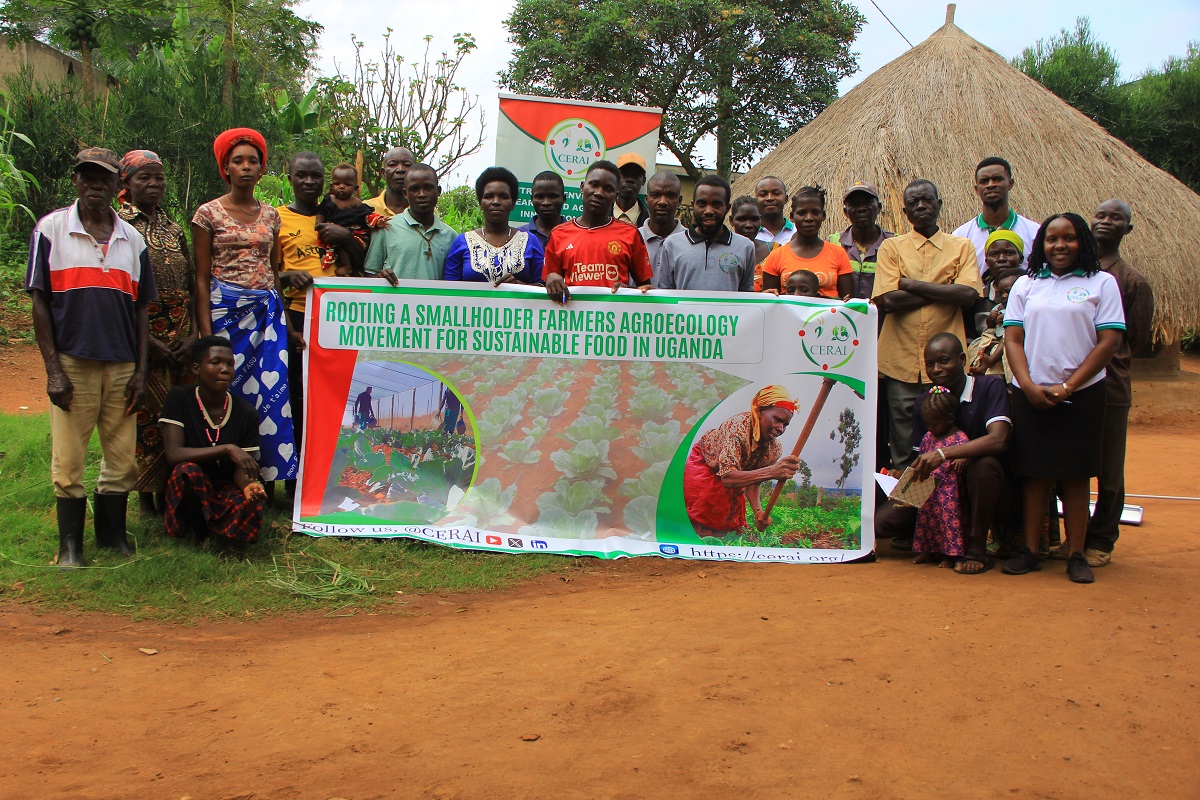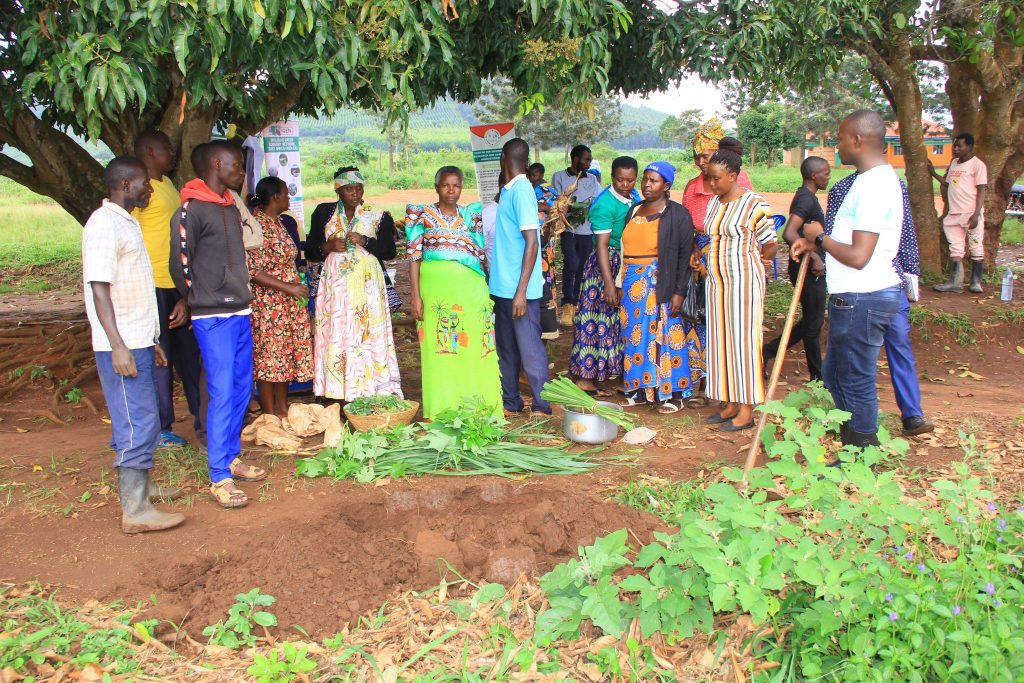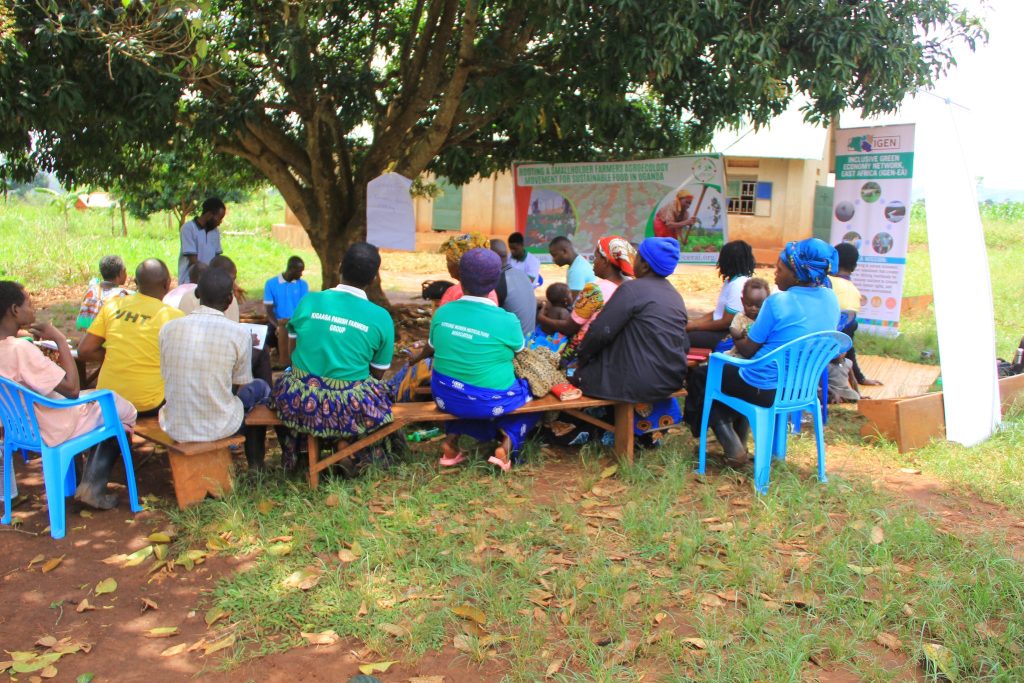
On World Food Day, Uganda proudly joined the global community to celebrate and reflect on the importance of food security, sustainable agriculture, and the power of communities to drive change. In collaboration with IGEN East Africa, CERAI (Community Energy Resources and Advocacy Initiative) took this opportunity to organize a vital agroecology training for small-scale farmers in Kijumba Village, Hoima. This hands-on session focused on sustainable farming practices, including the production of compost manure and organic pesticides, empowering farmers with the skills needed to increase productivity while preserving the environment.
At CERAI, we believe that food production should not come at the expense of the environment. Our mission is to equip local farmers with the knowledge and tools to adopt agroecological practices that are not only beneficial to their farms but also crucial in fighting climate change. The training in Kijumba Village is a part of CERAI’s broader commitment to empowering grassroots communities with the skills to lead sustainable development, ensuring that rural farmers are at the forefront of Uganda’s transition to eco-friendly agriculture.


During the training, farmers were introduced to the benefits of using compost manure, an organic alternative to synthetic fertilizers. Composting helps improve soil health by increasing its organic matter content, enhancing nutrient retention, and promoting soil biodiversity. It is also a cost-effective solution for small-scale farmers, allowing them to recycle farm waste into valuable nutrients for their crops.
The session also covered the production and application of organic pesticides, another key component of agroecological farming. Traditional pesticides often contain harmful chemicals that damage ecosystems and pose health risks to farmers and consumers alike. Organic alternatives, on the other hand, are made from natural ingredients like neem, garlic, and chili, which are effective at controlling pests without harming the environment or human health.
The farmers learned how to prepare these organic solutions using locally available resources, enabling them to combat pests sustainably without relying on expensive chemical inputs. These practices not only reduce production costs but also contribute to healthier food and ecosystems.
The agroecology training in Kijumba Village is part of a larger strategy by CERAI to equip farmers with sustainable agricultural techniques that can be applied on their farms. By working directly with small-scale farmers, we aim to foster a deeper understanding of the relationship between food production, soil health, and climate resilience. Through the adoption of agroecology, farmers are becoming stewards of the land, ensuring that their farming practices benefit both their livelihoods and the planet.
Hoima is a key region for CERAI’s work because of its significance as both an agricultural hub and a center of Uganda’s fossil fuel exploration. As we work to transition the region away from fossil fuel reliance through clean energy initiatives, we recognize the need to support farmers in adopting sustainable farming practices that reduce environmental degradation and promote long-term food security.
Agroecology provides a pathway for communities in Hoima to build resilience against the dual threats of climate change and the negative impacts of fossil fuel extraction. By training farmers to produce their own compost and organic pesticides, CERAI is not only supporting sustainable agriculture but also ensuring that these farmers can continue to feed their families and communities without harming the environment.
As we celebrate World Food Day, CERAI’s agroecology training serves as a reminder that food security starts with sustainable farming. This year’s theme, “Water is Life, Water is Food. Leave No One Behind,” resonates deeply with our mission to ensure that every farmer, no matter how small, has access to the resources and knowledge needed to grow food in harmony with nature.
Through initiatives like the Kijumba Village agroecology training, CERAI and partners like IGEN East Africa are helping farmers cultivate not only food but also hope—for healthier soils, more resilient communities, and a brighter, more sustainable future.
CERAI’s commitment to promoting agroecology and sustainable farming practices is just one part of our broader mission to create a clean, eco-friendly future for Uganda. We invite you to join us in celebrating World Food Day by supporting the work we do to empower small-scale farmers, build climate resilience, and protect our environment. Together, we can create a sustainable food system that benefits both people and the planet.
Together, we can create a sustainable food system that benefits both people and the planet.
Copyright © 2021 CERAI UG. All rights reserved.